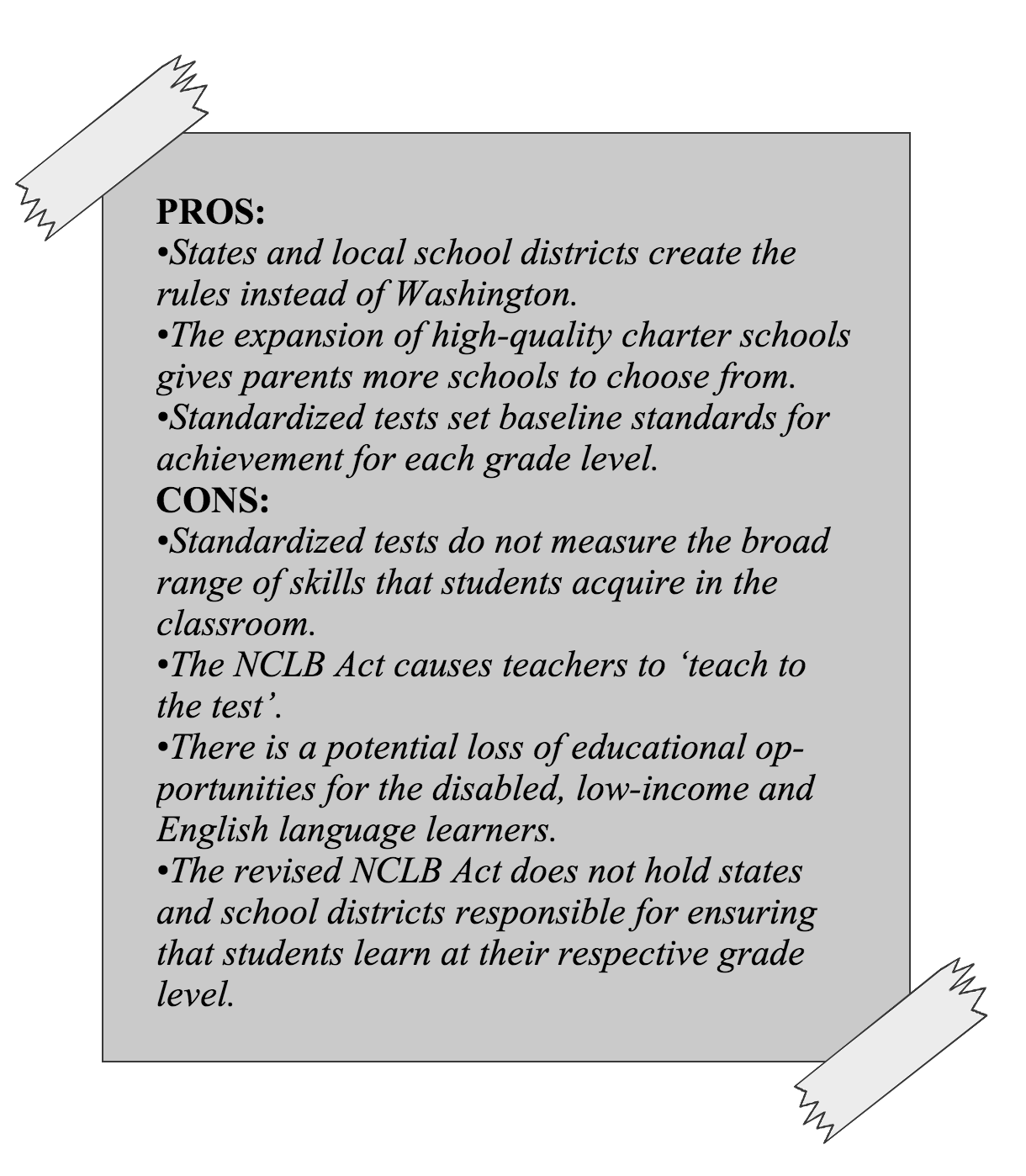2001 ‘No Child Left Behind’ Education Law Rewritten
DEBORAH CHEN
Copy Editor
Former president George W. Bush’s No Child Left Behind (NCLB) Act, which affects how federal funds are spent in public schools, was rewritten on July 19 by the House of Representatives. This change occurred because the Republicans wanted to renovate the original law to reduce federal involvement in education issues; however, it was met with resistance from the Democrats.
The Republicans and the Democrats both agreed that, despite the successes that were garnered in improving achievement levels, the law was too inflexible and required a major overhaul.
The NCLB Act required all students to have the appropriate reading and math skills for their grade level by 2014. However, last year, the Obama administration argued that this objective was unattainable. Last year, it began to offer waivers to states that created their own federally approved plans to measure student and teacher performance for college and careers, ensuring that students are prepared.
House Republicans voted to dismantle the original NCLB Act because they felt that the states and local school districts, rather than Washington, should be the ones creating the rules to ensure that students are receiving a quality education.
The new bill would get rid of more than 70 elementary and secondary educational programs. Instead, grant money will be given to the states and school districts to improve the areas they deem necessary. Additionally, the bill would eliminate federally required testing of students and the adequate yearly progress criteria. Furthermore, the bill would encourage high-quality charter schools to expand, thus giving parents a wider range of schools to choose from in order to find one that would suit their student’s needs.
Therefore, California and the Alhambra Unified School District (AUSD) will have the power to develop their own plans and strategies in order to improve school and student performances.
“This will allow us to set educational goals that are reasonable, so that students do not get discouraged,” science teacher Daniel Hyke said.
Although the school district is still in the process of working on the changes, they have notified the schools that there will be many professional changes and more timelines which to adhere.
“Overall, I just want what best serves kids,” Principal Duane Russell said.
However, the Obama administration said the revised NCLB law is a step backwards in terms of the efforts to better prepare students for colleges, careers and improvements to low-performing schools. Democrats also argued that the legislation would lower the spending levels for education and would not hold the states and schools accountable for ensuring that the students are learning.
Though the modified law was voted against by every Democrat and 12 Republicans, the revised law still passed with a 221-207 vote.
Despite their loss, the Democrats are working on their own act. Their act contains similar aspects to the Republicans’ act in that it would also give the states more flexibility to advocate school improvement standards. However, their bill allows the federal education secretary to be in control and to approve of any plans. Nevertheless, it is unlikely that a Senate vote will occur until autumn.
